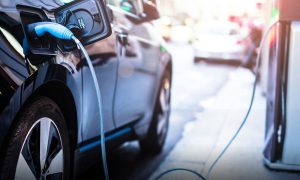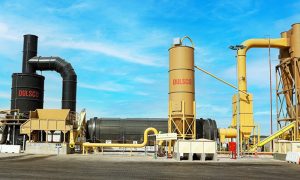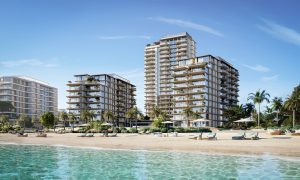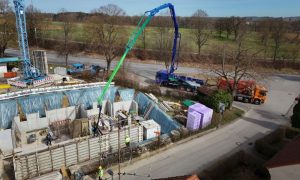More sustainability in the commercial vehicle business
2019 Sustainability Report from the SAF-HOLLAND Group published

SAF-HOLLAND has published its widest-ranging annual sustainability report yet.
The firm says the 2019 Sustainability Report shows how the company is contributing to a more sustainable transport industry and which activities are already showing results.
The report is available now in a reader-friendly, interactive PDF format and “for the first time includes all production sites worldwide, providing a thorough look at product innovations, supply chains, CO2 management as well as environmental and climate protection.”
All 24 production sites of the supplier for commercial vehicle parts in the four regions EMEA, Americas, APAC and China all feature and Alexander Geis, CEO of SAF-HOLLAND commented that, “this highlights the global alignment of our management approach to sustainability in our business.”
According to Geis, sociopolitical discussions about sustainability are an important factor which has influenced the actions of the supplier for commercial vehicle parts in 2019. He added that company is evolving to meet changes in regulations and the promise of data-driven technology.
Recording and analysis of the environmental impact at all sites now allows the company to provide complete data, for example on the energy consumption of individual factories. On this basis, SAF-HOLLAND will be able to identify hot spots at the different levels of the product life cycle in the future and take targeted action, such as lowering the emission of greenhouse gases. The medium-term objective is a climate strategy which systematically identifies the requirements of climate change in corporate risk management while using these as new business opportunities.
“We are convinced that with our product universe we will contribute significantly to a more sustainable transport industry,” said CEO Alexander Geis. “We put our focus on lightweight construction, durable quality products, date-driven fleet management and electrified drive axles.”
Highlights from the report:
Life cycle analysis as a basis for product innovations
To examine and improve all environmental influences from a complete axle unit, for example, SAF-HOLLAND generated a comprehensive life cycle assessment for a Trio axle unit and examined different usage scenarios. The phase of product use during driving makes up the largest part of the life cycle. The crucial parameter here is fuel consumption. “Product innovations which reduce weight or bearing friction allow us to save fuel and effectively reduce greenhouse gas emissions. We have been working on this as a priority for several years and will continue this focus in our development work in the future,” explains the SAF-HOLLAND CEO.
The axle specialist sees extended opportunities in the commercial vehicle market for its products and systems which are under continuous further development with regard to weight reduction and durability. The SAF INTRADISC plus INTEGRAL premium axle, for example, has been available in a lighter version since 2019, with a weight reduction of eight kilogrammes. The SAF TRAKe and SAF TRAKr electric trailer axles are another successful example from the SAF-HOLLAND range: They use the energy gained from regenerative braking to charge batteries or run electrical equipment.
SMART STEEL: linking mechanical and digital components
SAF TIRE PILOT is a technical solution for lowering CO2 emissions: The tyre-inflating system keeps tyre pressure constant, even with puncture damage, reducing road load and therefore fuel consumption. It also makes a spare tyre superfluous, which saves up to 160 kilogrammes.
Digitalization solutions also support fuel efficiency: In the SMART STEEL concept, SAF-HOLLAND intelligently links mechanical and digital components, for example in tyre pressure management. The TrailerMaster system additionally supplies fleet managers with useful operating data in real time, which can be used for optimum planning of operating periods or maintenance intervals of the trailers.
Strengthening sustainability in the supply chain
Responsibility does not stop at the factory gates: In 2019, SAF-HOLLAND thoroughly examined the topic of sustainability in the supply chain. The company considers compliance with this standard as an important added-value factor. Permanent monitoring of business processes also allows risks to be identified in the long term, evaluated and eventually minimised. Consequently, SAF-HOLLAND can base storage concepts or delivery routes on potential climate change hazards, for example extreme weather events such as heat waves or flooding. The same applies to the supply chains and own production sites.
Updated Code of Conduct
All suppliers have to undergo an audit process to qualify as a subcontractor for SAF-HOLLAND. They receive a questionnaire for self-certification, for example on issues of environmental protection or human rights. Current audits – conducted throughout the Group in 2019 for 56 suppliers of production materials – have shown that all audited partners meet the required standards. To further raise awareness among auditors and purchasers and to derive relevant topics in individual regions, SAF-HOLLAND has added sustainability criteria to the self-certification and communicates its updated Code of Conduct to all suppliers. The guideline for value-based and legally compliant conduct was first released in 2013 and was comprehensively revised and updated in 2019.















